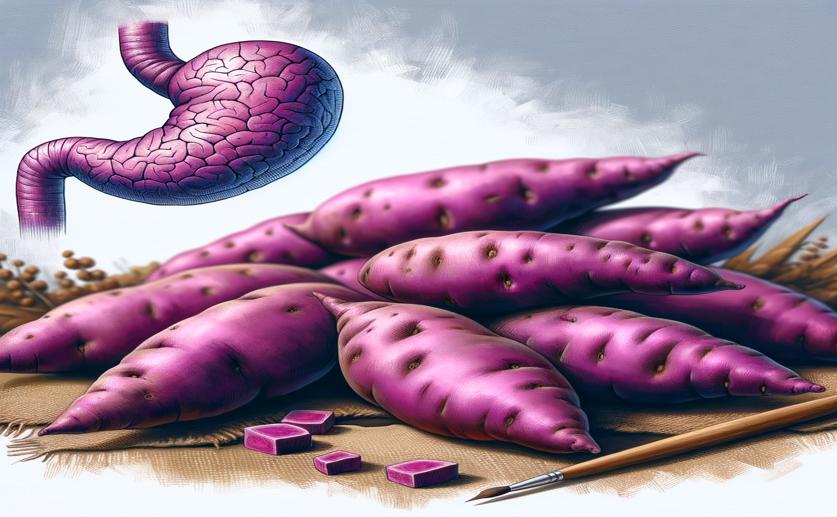
Purple Sweet Potato Compounds Protect Against Stomach Ulcers
Greg Howard
13th May, 2024

Image Source: Natural Science News, 2024
Key Findings
- In a study from Tianjin University, purple sweet potato extract reduced stomach ulcers in mice
- The extract decreased stomach acidity and harmful enzymes, improving ulcer symptoms
- It also balanced immune responses, potentially aiding in stomach lining health
References
Main Study
1) Gastroprotective effects of polysaccharides from purple sweet potato (Ipomoea batatas (L.) Lam) on an ethanol-induced gastric ulcer via regulating immunity and activating the PI3K/Akt/Rheb/mTOR pathway.
Published 10th May, 2024
https://doi.org/10.1039/d4fo01071j
Related Studies
2) Peptic Ulcer Disease: A Brief Review of Conventional Therapy and Herbal Treatment Options.
3) The prospective curative role of lipoxin A4 in induced gastric ulcer in rats: Possible involvement of mitochondrial dynamics signaling pathway.
4) Protective effects of pogostone from Pogostemonis Herba against ethanol-induced gastric ulcer in rats.
5) The antiulcer effect of Cibotium barometz leaves in rats with experimentally induced acute gastric ulcer.



 12th April, 2024 | Greg Howard
12th April, 2024 | Greg Howard